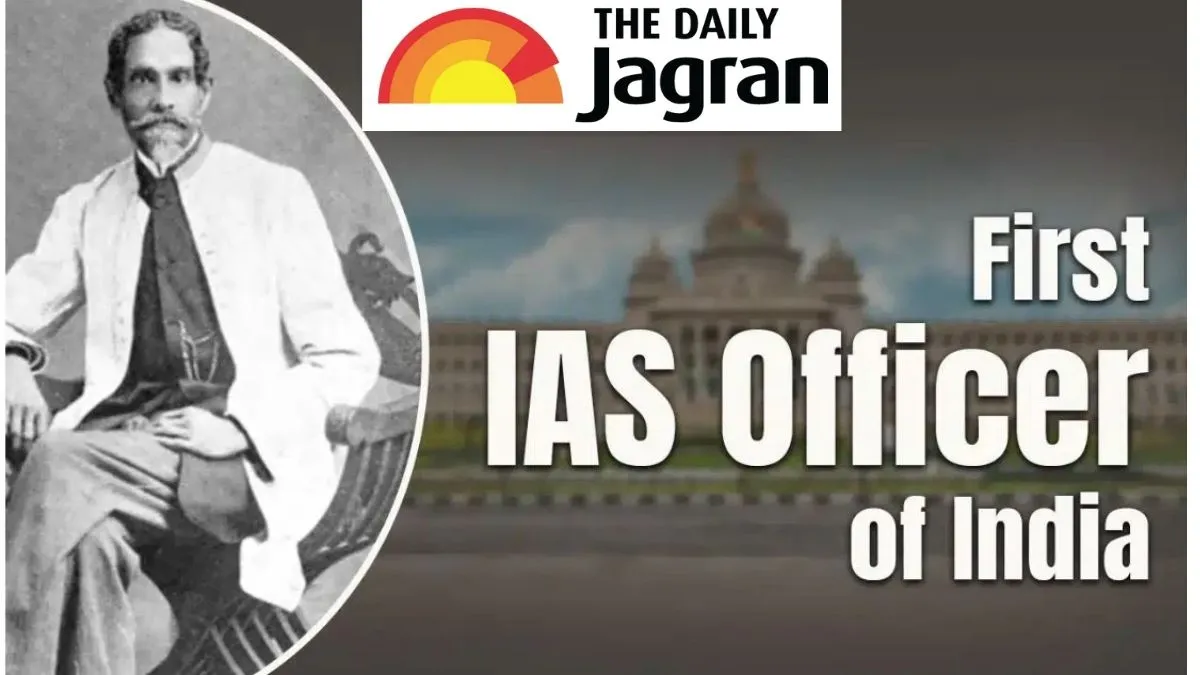- By Sarju Saran Tiwari
- Sun, 06 Jul 2025 08:25 PM (IST)
- Source:JND
India's first IAS officer: Satyendranath Tagore became India's first IAS officer in 1863, breaking racial barriers in British colonial administration.The history of India's civil services is marked by extraordinary individuals who broke societal barriers and paved the way for future generations. These pioneering officers not only excelled in their administrative roles but also contributed significantly to social reform and national development. his stories represent the triumph of determination over discrimination and the power of education to transform society.
Understanding the journey of India's first IAS officers provides valuable insights into the evolution of our administrative system and the courage required to challenge established norms. From colonial resistance to gender equality, these officers demonstrated that excellence knows no boundaries of race, religion, or gender, inspiring countless individuals to pursue careers in public service.
Satyendranath Tagore: The Pioneer
Early Life and Background
Satyendranath Tagore was born on June 1, 1842, in Calcutta to the illustrious Tagore family. As the eldest son of Maharishi Debendranath Tagore and elder brother of Nobel laureate Rabindranath Tagore, he grew up in an environment of intellectual vigor and progressive thinking. The Brahmo Samaj's reformist ideals deeply influenced his worldview, emphasizing monotheism, social reform, and women's empowerment.
His education at Presidency College, Kolkata, exposed him to Western liberal thought while maintaining his Indian cultural roots. This unique blend of Eastern wisdom and Western knowledge would later define his approach to administration and social reform.
Historic Achievement and Challenges:
| Milestone | Year | Significance |
|---|---|---|
| Sailed to England | 1862 | First Indian to attempt ICS examination |
| Cleared ICS Exam | 1863 | Became first Indian Civil Servant |
| Administrative Service | 1863-1897 | Served with distinction for 34 years |
| Social Reform Work | Throughout career | Advocated for women's rights and education |
Despite facing racial discrimination and cultural isolation, Satyendranath's indomitable spirit helped him navigate the British administrative system. His presence in the ICS became a symbol of Indian capability and inspired countless others to pursue careers in public service.
Multifaceted Contributions:
Literary and Cultural Impact
- Translated works of Rumi, Hafiz, Shakespeare, and Byron into Bengali
- Composed songs blending Indian ragas with Western tunes
- Wrote essays on cultural modernization and gender equality
- Created "Mile Sabe Bharat Santan, Ektan Gago Gaan," considered by many as India's first national anthem
Administrative Reforms
- Implemented policies supporting women's empowerment
- Advocated against the caste system
- Promoted modern education among Indians
- Balanced British administrative requirements with Indian aspirations
Lasting Impact and Inspiration:
Both Satyendranath Tagore exemplified the highest ideals of public service. his achievements transcended personal success, creating pathways for others to follow. Satyendranath's entry into the ICS proved that Indians could excel in administrative roles.
His stories remind us that breaking barriers requires not just individual courage but also unwavering commitment to serving society. They transformed challenges into opportunities, using their positions to advocate for social reform and national development.
The journeys of India's first IAS officers represent more than historical milestones; they embody the spirit of transformation that defines our nation. Satyendranath Tagore's breakthrough in 1863 a continue to inspire civil servants today. his legacies remind us that public service is not merely about administration but about using one's position to create positive change in society.
These pioneering officers proved that excellence, integrity, and social commitment can overcome any barrier. his stories continue to motivate young Indians to pursue careers in civil services, carrying forward the tradition of dedicated public service that forms the backbone of our democracy.


